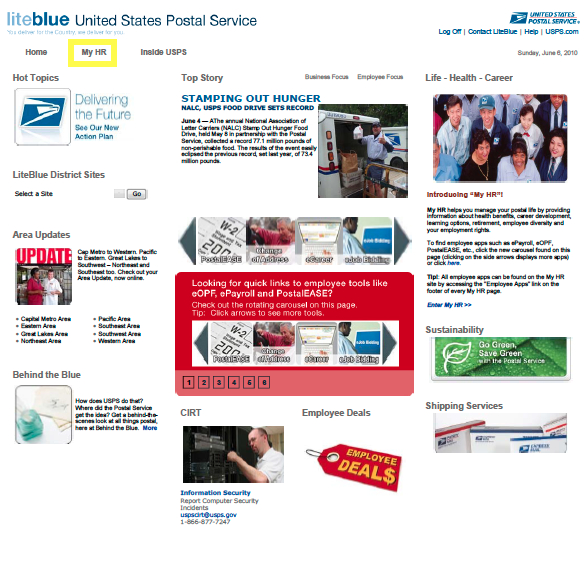Are You Sincerely Prepared to Resign?
 With all the focus on the financial side of planning for retirement, have you also considered the emotional side to what retirement might mean for you? Working with a financial planner to set goals, figure out how much money you need to save and later figuring out what a safe withdrawal rate is, are only part of what you need to consider to be emotionally ready for retirement. Preparing yourself emotionally should be an equally important aspect of your planning.
With all the focus on the financial side of planning for retirement, have you also considered the emotional side to what retirement might mean for you? Working with a financial planner to set goals, figure out how much money you need to save and later figuring out what a safe withdrawal rate is, are only part of what you need to consider to be emotionally ready for retirement. Preparing yourself emotionally should be an equally important aspect of your planning.
Many people aim for retirement at 65, but with longer life spans and a better quality of life, for some, 65 may just feel too early, while others can’t envision working past 60. Or maybe you’ve been forced into an earlier retirement due to the recent financial crisis and the subsequent slow economic recovery. Regardless of the circumstances that bring you to deciding you’re nearing retirement, proper planning can help you to avoid emotional, as well as financial, pitfalls.
Retirement is supposed to be relaxing and fun, but in reality, the early part of retirement can be a stressful time. There are a number of questions you should consider, along with your financial readiness, to establish if you are emotionally ready for retirement.
What does retirement mean to you?
You can spend years financially planning and thinking about what you’ll do, but often the reality of retirement can be quite different than the idea. Understanding what this really means to you can take some time. After a number of months, you may find yourself wanting to work again, even if it’s simply a part-time job. You may decide that traveling the world isn’t all you had thought it would be. Be prepared to be flexible with a potentially changing outlook on retirement the first few years.
If you are married, in a relationship or have a significant other, you’ll also want to discuss with each other what retirement means to each of you. Retirement to you could mean traveling all over the world. Retirement to your significant other could mean only traveling to see your grandchildren. Maybe one of you wants to keep working part time, which would limit any travel you can do together. Make sure you have open communication about what you foresee in this phase of your lives. You should start having these conversations early and often.
Are you ready for the non-structured life that retirement can provide you?
If you’ve ever spent more than two weeks at home during a vacation, had a sabbatical or experienced a job loss, you’ve gotten a sense of what retirement may feel like. Going to work every day gives people a sense of purpose and structure. The lack of this structure during retirement can be frightening or anxiety-producing for some. And for some couples, the thought of spending more than two weeks straight together can be even more nerve-racking. This is where the mystique of retirement can wear off quickly. When all those chores you’ve been putting off are done, and all the travel you’ve wanted to do has been done, you may be left wondering — so now what?
To alleviate some of this anxiety, you may want to consider phasing into retirement, if that’s possible. You may want to try working with your employer to continue your job on a part-time or contract basis. You may also want to try taking a few extended vacations but actually staying home. Beginning with the first day, wake up and try to put yourself in a retirement mindset. Approaching it in this way may help you ease into retirement.
You should also be prepared to know what hobbies and/or volunteer opportunities you may want to get involved with. This is usually the time when people find themselves perfecting their golf game, improving their tennis serve or becoming active in the community. Remaining active helps to keep you healthy physically and emotionally as well as providing the structure you may be missing.
Are you emotionally prepared to leave your job and not have a paycheck?
More than likely, you’ve been working and collecting a paycheck for 40 years, more or less, which provides you with a certain sense of security. Rather than being in the accumulation of wealth phase, you will now be in the withdrawal phase and drawing a “paycheck” from your own savings. Although you will have your annuity, your Social Security and your savings and investments, the loss of a paycheck can produce some anxiety.
If you’re concerned that the emotional withdrawal from receiving a paycheck may be too much for you at first, you may want to opt for a part-time position to begin with.
Depending upon when you retire, you may have a third or more of your life ahead of you. The best way to prepare is to understand that retirement, similar to other stages in your life, will offer a number of different financial and emotional phases. Your willingness to plan, adjust that plan and be ready for the unexpected will help you enjoy the golden years you’ve worked so hard to reach.
Do You Have An Emotional Plan for Retirement?
To help you get ready for retirement, you should consider having an emotional as well as a financial plan. Here are some key issues to consider for the emotional aspects of retirement.
Set Lifestyle Goals
Make a list of 10 things you would love to do during retirement. Next, write down how much time you currently spend on these activities. More than likely, you have a retirement dream that includes many exciting pursuits. But if you are not pursuing these activities now, what makes you think retirement will change this? Most people make the time to do the things they love no matter how busy they are. As a result, consider how realistic your retirement pursuits are and just how much they mean to you.
If you have spent the last 20 or 30 years being a workaholic, determine how you can best use the energy you put into your career into your retirement activities. This may help you offset feelings of boredom or uselessness.
Build A Network
You may spend as many as 30 to 40 years in the retirement stage of your life. As a result, it is vital that you have a good support system during this next phase. Make time to socialize with your friends. In addition, talk to friends and colleagues who have already made this transition to find out what activities they have found enjoyable and how the adjustment process was for them.
Consider Your Spouse’s Feelings
Retirement may also be an adjustment for the spouse who is either continuing to work or already staying home. Talk with your spouse candidly to see if they have the same ideas as you do about what will happen during your retirement years. It is quite common for only one person in a marriage to retire early. This may cause some uneasiness for the person retiring or the one remaining in the work force. For example, the working spouse may expect the retired spouse to be responsible for more of the household chores. Or, the working spouse may resent the freedom the retired spouse now has. According to a Cornell University study, friction is most common when the husband retires before the wife does. To ensure your piece of mind, as well as your spouse’s, work together and establish a game plan that makes you both happy.
Live Your Dream.
Consider pursuing things you have always wanted to do, but never had the time to really enjoy. That could include volunteering to help other people, gardening, taking up carpentry, taking classes at a community college, or learning to play a musical instrument.








